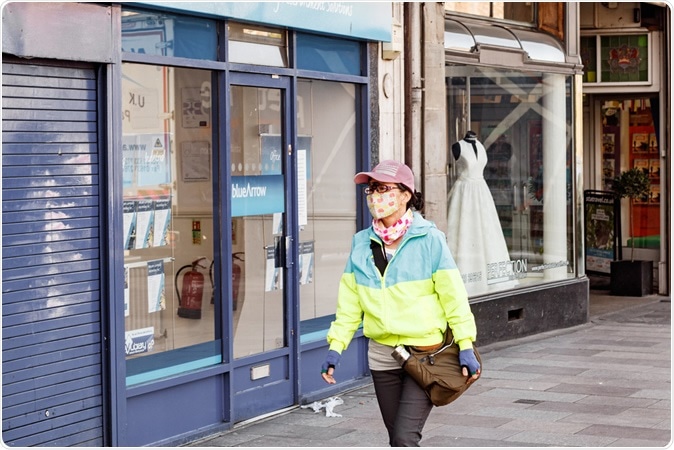The United Kingdom has announced emergency laws to curb the spread of the coronavirus disease (COVID-19), giving the government more powers to protect public health, strengthen social care, support the public, and boost the NHS capacity.
With the new laws, ports and airports could be closed, and the government will grant powers to the police to place people in appropriate isolation facilities. Patients will be discharged early to provide room for seriously ill people, while social care is prioritized for those who need critical care.

Cardiff, UK. 12 March 2020. The United Kingdom has announced emergency laws to curb the spread of the coronavirus disease (COVID-19). Image Credit: Ray Morgan
Primary goals
The measures aim to save lives and support health workers, who are projected to face immense strain if the numbers of confirmed cases continue to increase, the ministers said.
The legislation will run for two years, covering areas such as social care, schools, border force, police, funerals, courts, and local councils. The new law is timely since the country has so far reported 2,642 confirmed cases and 72 deaths.
Health Secretary Matt Hancock said the primary goal of the legislation was to slow down the spread of the deadly virus and help prepare the health services to prevent strain in the long run.
The key measures included to boost the NHS capacity is to call on recently retired health workers to go back to work, providing special insurance coverage for staff, extra employment safeguards for volunteers to let them take a cause from their primary jobs and reduction of paperwork.
"By planning for the worst and working for the best, we will get through this, but this is a national effort, and we must all work together. Crucially they give the government the powers it needs to protect lives," Hancock said.
Delay the peak of the virus
The UK government plans to slow the virus spread through summer when the NHS health care system is the least stressed.
"Our approach to responding to this outbreak has and will remain driven by scientific and clinical evidence, so we do the right thing at the right time. The measures included in this bill will help support our frontline workers, protect the public and delay the peak of the virus to the summer months when the NHS is typically under less pressure," Professor Chris Whitty, Chief medical officer for England, said.
"It is important everyone continues to play their part by avoiding non-essential contact and travel as well as washing their hands regularly for 20 seconds with soap and water," he added.
Cancellation of social gatherings
Prime Minister Boris Johnson advised all Britons to cancel all mass gatherings in the country amid the coronavirus outbreak. All sporting events are now canceled, while social venues such as pubs should be avoided.
"It remains true - as we said in the last few weeks - that this sort of transmissions of the disease at mass gatherings such as sporting events are relatively low, but obviously, logically, as we advise against unnecessary social contact of all kinds, it's right that we should extend that advice to mass gatherings as well," Johnson said.
"And so we've also got to ensure that we have the critical workers we need that might otherwise be deployed for those gatherings, to deal with those emergencies.
"So from tomorrow, we will no longer be supporting mass gatherings with emergency workers in the way that we normally do."
Concert pushed through
A band was heavily criticized for pushing through with its concert over the weekend, wherein thousands of fans and audiences appeared crowded in the venue.
The band, Stereophonics, was seen in photos showing its gig at Cardiff's Motorpoint Arena, which was packed with fans coming to watch the band perform as part of its Kind 2020 tour.
Even in other countries and regions, people show disregard for precautions despite having a global pandemic sweeping the globe. There are more than 200,000 infections and at least 8,000 deaths caused by the coronavirus disease (COVID-19).
Over the weekend, hundreds of people have celebrated St. Patrick's Day in the United States and Ireland, while hundreds went to Disney World to witness the final fireworks before closing the theme park temporarily. In Mexico, Brazil, and the UK, people continued to conduct mass gatherings, such as concerts and protests.